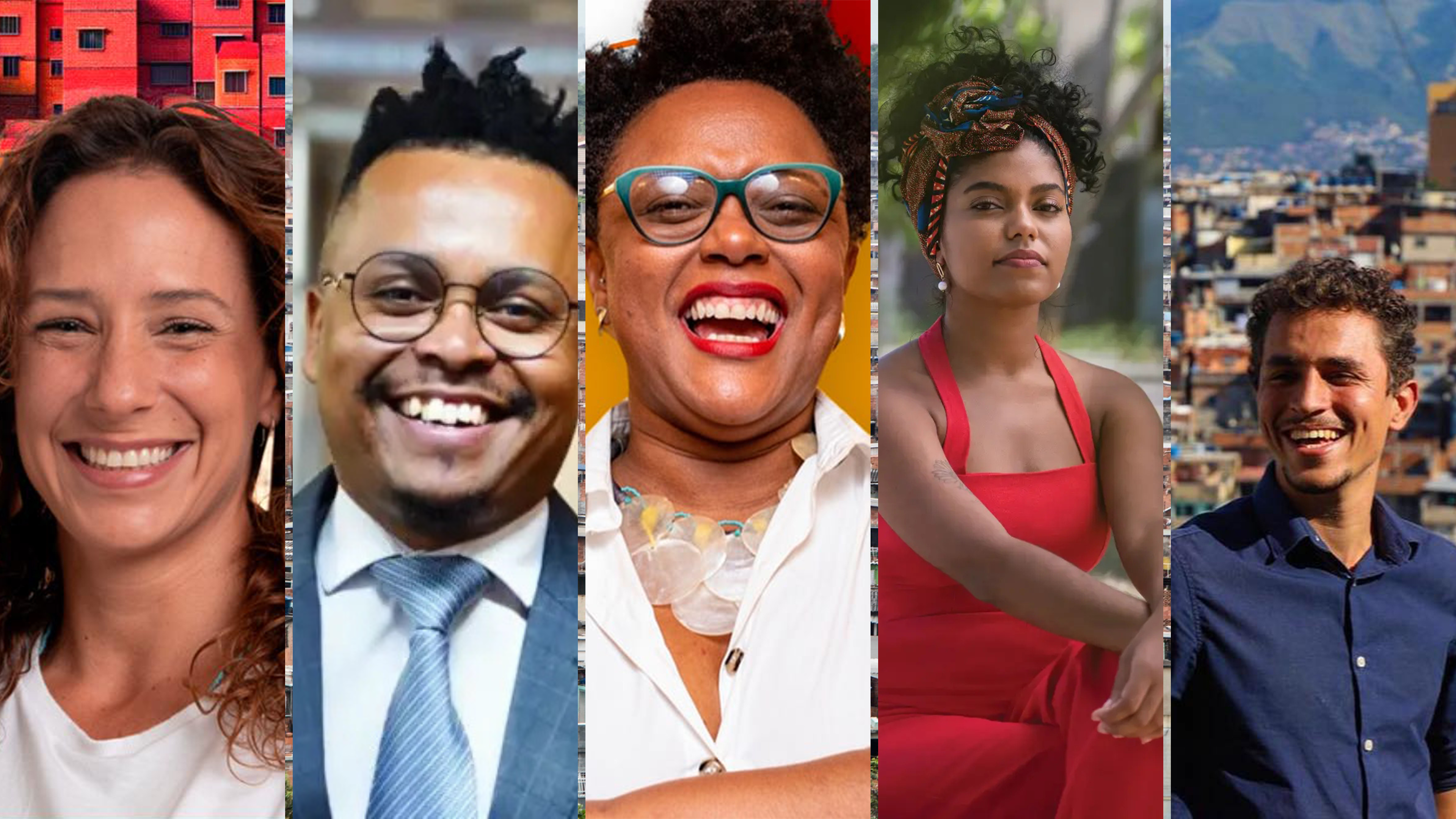
Clique aqui para Português
On Sunday, October 6, Eduardo Paes, of the Social Democratic Party (PSD), was re-elected mayor of Rio de Janeiro for his fourth term, this time with Eduardo Cavaliere, from the same party, as vice-mayor. They secured 60.26% of the votes, leading a coalition of twelve parties. Paes had previously won three mayoral elections in Rio: 2008, 2012, and 2020. Once his fourth term begins, he will become the longest-serving mayor in the city’s history—surpassing Cesar Maia, his former political mentor.
Paes will face challenges such as reducing the waiting list for medical procedures. As of June 2024, the most recent figures indicated 335,410 people waiting for services like cardiology or neurology. In education, at least 12,000 children await spots in daycare centers. Paes has promised to eliminate this number during his fourth term. In his governance plan, Paes also promised to make Rio the “top capital city in the nation in terms of enrollment in full-day school, reaching over 70% coverage across the city.”
According to data from the 2022 Census of Rio de Janeiro’s Homeless Population, conducted between November 21 and 25, 2022, the city has 7,865 people experiencing homelessness. Of this total, 83% reported consuming at least one type of drug during the week of the survey. The reality is even harsher when it comes to the number of people facing hunger. According to data from the First Food Insecurity Survey of the Municipality of Rio de Janeiro, released in May of this year, severe food insecurity affects 7.9% of the city’s households. In absolute numbers, 488,709 people, including adults and children, are facing hunger.
With regard to favelas, Paes promises to expand coverage of the Morar Carioca and Bairro Maravilha programs citywide, in addition to promoting “housing improvements in 20,000 homes for families identified as socially vulnerable through the Casa Carioca program, and creating the HUB Entrepreneurial Favela program to support and assist entrepreneurs from the city’s favelas and communities.”
Changes Still Do Not Guarantee Favela Representation on the City Council
On the same day, 51 new members of the City Council and their alternates were elected. Overall, there were significant changes in the composition of the main political forces that made up the previous legislatures. However, the lack of representation of women, Black people, and residents of favelas and peripheral areas persists. Despite the partial renewal of the chamber, many councilmembers have established careers in Rio’s political scene. Voters had nine candidates for mayor and 1,028 council candidates to choose from. Out of this total, 51 councilmembers were elected, 32 from center-left parties, and five born and raised in favelas: Tainá de Paula (PT), from Favela do Loteamento in Praça Seca; Joyce Trindade (PSD), from Morro do São Bento in Padre Miguel; Salvino Oliveira (PSD), from City of God; Mônica Benício (PSOL), from Conjunto Esperança in Complexo da Maré; and Rafael Satiê (PL), from Morro do Encontro in Complexo do Lins. Therefore, favela-born councilmembers make up 9.8% of the City Council elected in 2024. When considering that over 22% of the city’s population lives in favelas, an inadequate level of favela representation remains in Rio’s legislative body.
The 2024 elections brought a 45% renewal of the City Council: of the 51 councilmembers elected, 23 will be serving their first term, while 28 have been re-elected.

It is important to note that, this time around, historic activists Monica Cunha (PSOL), born and raised in Manguinhos and founder of Movimento Moleque; Edson Santos (PT), born in Horto Florestal, an ancestral territory; and Veronica Costa, Liberal Party (PL), known as the “Blonde Mother,” one of the most iconic figures of 1990s and 2000s Carioca funk, born and raised in the Tomás Coelho community, were not re-elected.
Meanwhile, Paes is expected to have the support of over half of the City Council, as his party coalition elected 28 councilmembers. His own party, the PSD, will become the largest political force in the City Council starting in 2025, having grown fivefold. It went from three councilmembers, elected in 2020, to 16 elected in 2024 for the next legislature.
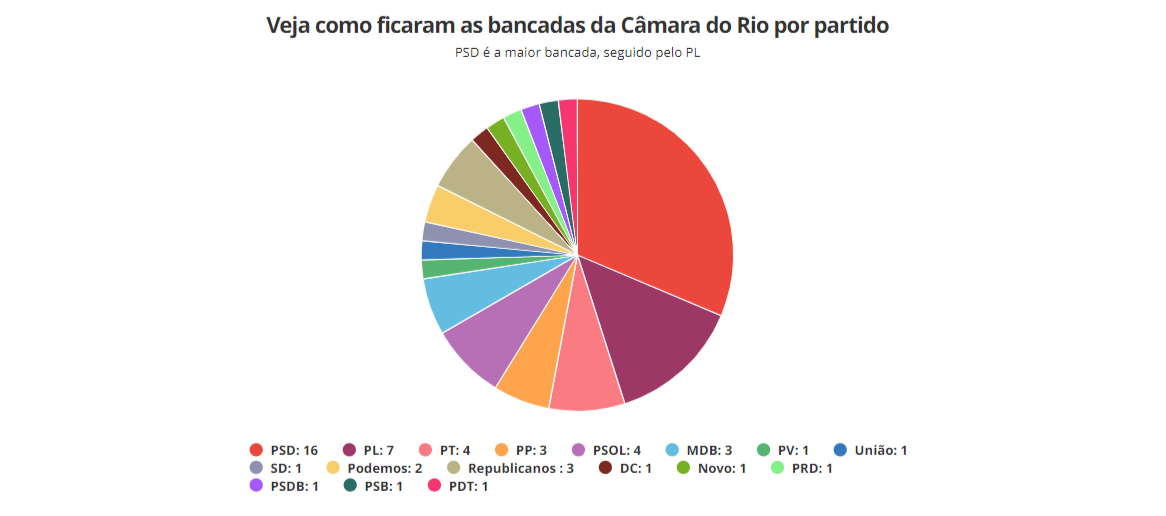
Candidates from Favelas and Peripheral Movements in the City Council
Below are the mini-bios of elected representatives from favelas or peripheral movements, listed in order of votes received:
- Tainá de Paula (PT), Loteamento Community, Praça Seca
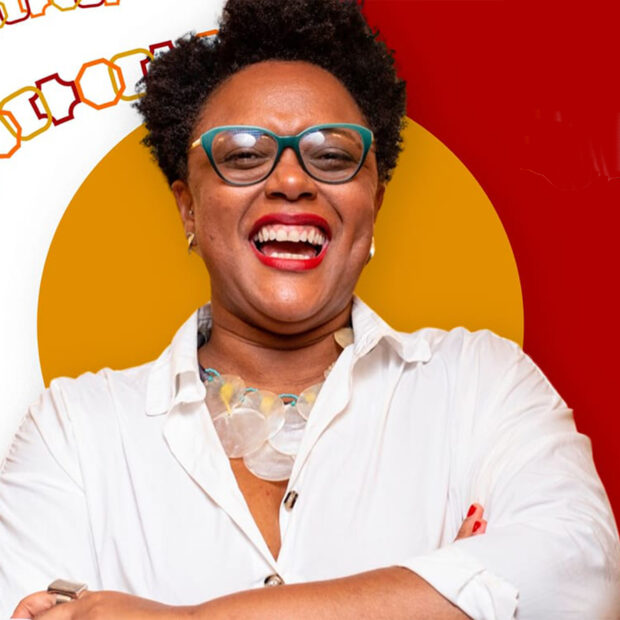
Tainá de Paula was the third most voted councilmember this year, with 49,986 votes. She was also the most voted woman, the most voted left-wing candidate, and the most voted Black candidate.
Born and raised in the Loteamento community in Praça Seca, in Rio’s West Zone, she is an architect and urbanist, an advocate for social and urban rights, with a focus on favelas and peripheral communities. Re-elected as a councilwoman for the Workers’ Party (PT), de Paula also led the Secretariat for Environment and Climate in Eduardo Paes’ third administration. She is committed to fighting social injustices, dedicating herself to creating legislation and public policies aimed particularly at Black people, women, mothers, LGBTQIAPN+ individuals, and peripheral and favela communities.
Her work stands out for building policies rooted in Rio de Janeiro’s favelas and vulnerable communities. De Paula has introduced over 100 bills while in City Council, including the Pedro Gonzaga Law, which fights racism and homophobia by security personnel in business establishments, and the Law to Combat Obstetric Violence, ensuring humanized care to expectant mothers in the public healthcare system (SUS). As Secretary for Environment and Climate, she placed women from favelas at the forefront of the debate with the Forest Guardians Program, and also engaged youth in this agenda through the Young Climate Negotiators Program.
A few days before the elections, the councilwoman’s car was hit by two gunshots in Vila Isabel, in the North Zone. The attack was carried out by two men who intercepted her vehicle, pulled up next to de Paula’s window, and fired. The councilwoman’s car is bulletproof, preventing injury during the attack.
Ver essa foto no Instagram
- Joyce Trindade (PSD), Morro do São Bento, Padre Miguel, and Cosmos

Joyce Trindade (PSD) was elected with 30,466 votes, making her the 10th most voted candidate in this election, ahead of established figures in Rio politics, such as former mayor César Maia, who came in 11th. Trindade was born and raised in Morro do São Bento, in Padre Miguel, but at a young age, she moved with her parents to the neighborhood of Cosmos, also in the West Zone. She graduated in Public Management at the Federal University of Rio de Janeiro (UFRJ). At 24, she became the Secretary for Women’s Affairs in Eduardo Paes’ third administration.
Now, at 27, and in her first term as a councilwoman, she aims to legislate for the expansion of the Ronda Maria da Penha program and strengthen the enforcement of the rights of children, adolescents, and the elderly, in partnership with Child Protective Services. Another key point of her platform is integrating mothers and people over 50 into the workforce, ensuring gender equality in professional opportunities. Lastly, she seeks to allocate a budget and establish permanent structures for the Women’s Secretariat.
Trindade comes from the student movement and was inspired by one of her primary role models, former Councilwoman Marielle Franco, born and raised in Maré, who was assassinated in 2018 while fighting for favela, housing, and land rights.
Ver essa foto no Instagram
- Mônica Benício (PSOL), Conjunto Esperança, Complexo da Maré
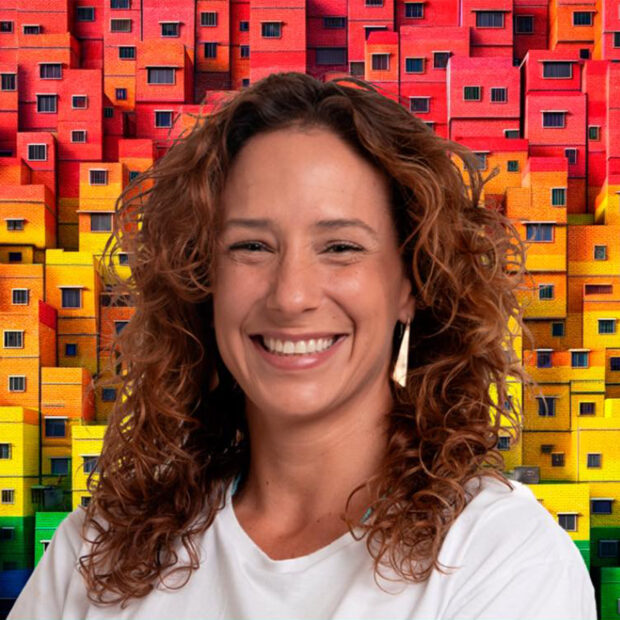
Re-elected with 25,382 votes, placing 18th among the 51 elected councilmembers, Councilwoman Mônica Benício was born in Conjunto Esperança, one of the 16 communities that make up the Maré cluster of favelas. In 2004, she finished high school and enrolled in the community-run college prep course at the Center for Studies and Solidarity Actions of Maré (CEASM). Today, she holds a master’s degree in architecture specializing in “Violence and the Right to the City.” A feminist and a lesbian, her journey has been marked by activism for human rights and the defense of the LGBTQIAPN+ population.
In 2020, Benício was elected 11th most voted councilmember in Rio de Janeiro. Her work as a councilwoman has been strongly focused on the fight for justice for her wife, Marielle Franco, who was brutally murdered in 2018 for her role advocating for the right to housing as a Rio city councillor. Benício advocates for public policies that ensure social inclusion and the protection of women’s and LGBTQIAPN+ rights. She chairs the Culture and Women’s Defense committees. Her legislative projects emphasize the fight against gender-based oppression in Rio de Janeiro. In 2022 Law 7291, proposed by the councilwoman, came into effect, establishing the Municipal Program to Combat Femicide. This law focuses on the prevention and combat of femicide, the most extreme form of violence against women.
In her 2024 re-election campaign, Benício advocated for the need to renew her feminist, anti-fascist, and grassroots mandate for another four years. Her goal is to continue working towards a city that offers more dignity for the entire population, especially women, LGBTQIAPN+ individuals, and residents of favelas and peripheral areas.
Ver essa foto no Instagram
It is important to note that mainstream media highlighted Mônica Benício’s victory as the widow of Marielle Franco, in contrast with the defeat of relatives of those accused of her wife’s murder. As pointed out in Lauro Jardim‘s column in the O Globo newspaper, Kaio Brazão and Waldir Brazão were not elected. Together they received 14,575 votes, while Mônica Benício secured 25,832 votes.
Ver essa foto no Instagram
- Salvino Oliveira (PSD), City of God
Salvino Oliveira (PSD) received 27,062 votes, placing 27th among those elected for the next legislature. Elected for the first time as a councilmember, he plans to bring to the City Council the experience he gained as Secretary of Youth for Rio de Janeiro during Eduardo Paes’ third administration. At 26, born and raised in City of God, in Jacarepaguá, in Rio’s West Zone, Oliveira has a background in public management and community movements. He holds a degree in Public Management from the Federal University of Rio de Janeiro (UFRJ), worked as a volunteer in a community-run college prep course, and participated in other education-focused projects.
According to Oliveira, his “mission is to work on dreams.” He emphasizes the importance of creating opportunities to promote social and economic development in the municipality, with a particular focus on youth from favelas.
Oliveira first gained recognition as a columnist for PerifaConnection, a platform that intertwines the realities, dreams, struggles, and hopes of peripheral communities. Before entering politics, he worked as an assistant at the Public Defenders Office and was one of the founders of the Manivela Project.
Ver essa foto no Instagram
- William Siri (PSOL), Campo Grande

William Siri (PSOL) was re-elected with 19,872 votes, placing 28th. A councilmember since 2021, he is a resident of Campo Grande, in Rio’s West Zone, and an economist.
In the City Council, he serves as president of the Labor and Employment Committee and the Special Committee on Climate Emergency. He has produced ten reports, including one on education, which resulted from inspections of over 150 schools, and had 18 laws approved. Notable among them are the law that prohibited the suspension of social rent during the pandemic, benefiting 4,000 families, and the Sponge City Law, aimed at flood prevention.
He is a progressive Christian and one of the founders of the Walk for Religious Freedom in the West Zone. William Siri’s main proposals for this new term include supporting public servants, providing quality education, and preserving and restoring the environment.
Ver essa foto no Instagram
- Thais Ferreira (PSOL), Vaz Lobo

Thais Ferreira (PSOL) was re-elected with 17,206 votes, placing 35th. Born and raised in Vaz Lobo, in Rio’s North Zone, she was first elected as a councilwoman in 2020. Her term in the City Council, known as “Momdate,” a play on the words “mom” and “mandate,” focused on issues related to children’s and mothers’ rights. A community leader, activist, and mother of four young children, Ferreira is the author of 108 ordinances approved by the City Council and is responsible for establishing the Special Committee to Combat Violence and Racism in Obstetric Settings and the Municipal Statute for Racial Promotion and Equality. She was also the first woman to chair a session with her child in her arms and the first to take maternity leave in Rio’s legislature.
Ferreira was one of the founders of projects focused on mothers and children in vulnerable situations, such as “Mom&More,” which offers health education for mothers and children in the periphery, and the community campaign “Supporting Mothers Through the Curve,” which supported over 2,000 mothers in vulnerable situations during the 2020 pandemic. Now, re-elected, she plans to continue her work with a focus on early childhood, culture, the creative economy, the Right to the City, and education, as well as the fight against racism.
Ver essa foto no Instagram
- Maíra do MST (PT), Jacarepaguá
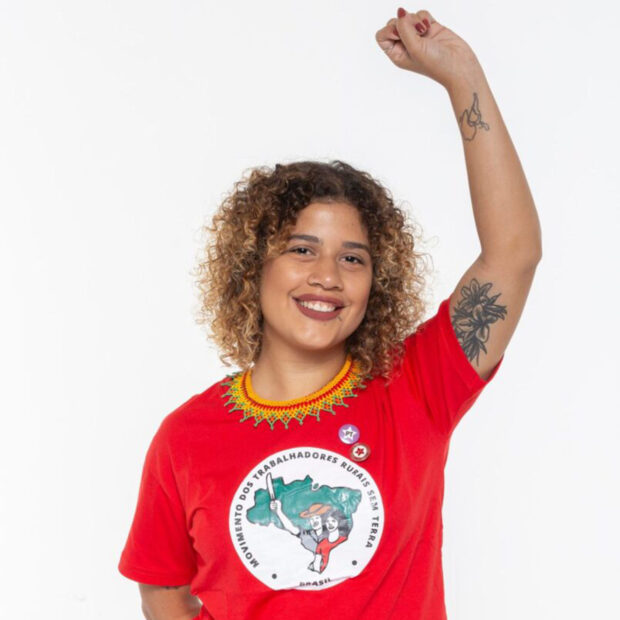
Maíra do MST (PT), was elected to her first term with 14,667 votes, finishing 44th. The Landless Workers’ Movement (MST) achieved a historic milestone by electing a city councilwoman in Rio de Janeiro. The young woman is a teacher and historian, a graduate of the State University of Rio de Janeiro (UERJ), and an activist with the Popular Youth Uprising and the Popular Brazil Movement. According to her profile on social media, her term will be dedicated to fighting hunger, supporting community kitchens, expanding public daycare centers, fighting violence against women, and ensuring that favelas and peripheral areas lead the transformation of our city.
Ver essa foto no Instagram
- Rafael Satiê (PL), Morro do Encontro, Complexo do Lins
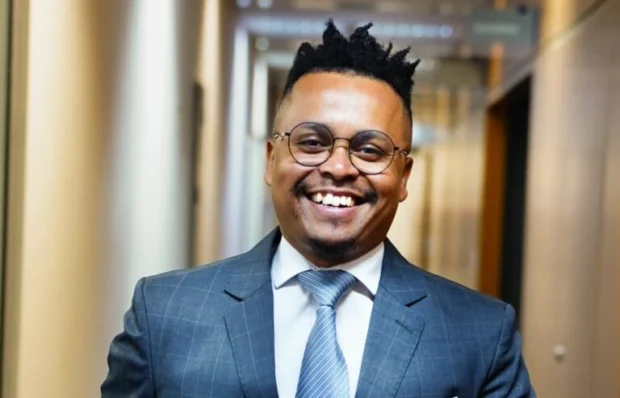
Rafael Satiê was elected to his first term with 13,582 votes, finishing 47th, and representing the Liberal Party (PL). Born and raised in Morro do Encontro, within Complexo do Lins, in Rio’s North Zone, the political analyst, communication specialist, and marketing director will now join the Rio de Janeiro City Council. As an evangelical pastor and missionary, he sees religion as the central axis of his political work and public values. In an interview, the newly-elected councilman traced the beginning of his relationship with politics to the 2013 protests across Brazil.
Ver essa foto no Instagram
Check out the full list of elected councilmembers in the city of Rio de Janeiro, as released by the Superior Electoral Court (TSE). The list includes the party and number of votes for each elected official:
CARLOS BOLSONARO (PL) – 130,480
MARCIO RIBEIRO (PSD) – 56,770
TAINÁ DE PAULA (PT) – 49,986
CARLO CAIADO (PSD) – 47,671
RAFAEL ALOISIO FREITAS (PSD) – 40,892
MARCELO DINIZ (PSD) – 39,967
ROSA FERNANDES (PSD) – 39,804
LENIEL BOREL (PP) – 34,359
FELIPE MICHEL (PP) – 31,773
JOYCE TRINDADE (PSD) – 30,466
CESAR MAIA (PSD) – 29,665
RICK AZEVEDO (PSOL) – 29,364
JUNIOR DA LUCINHA (PSD) – 28,743
HELENA VIEIRA (PSD) – 28,626
VERA LINS (PP) – 27,871
DIEGO VAZ (PSD) – 27,226
SALVINO OLIVEIRA (PSD) – 27,062
MONICA BENICIO (PSOL) – 25,382
FELIPE BORÓ (PSD) – 24,190
ZICO (PSD) – 23,319
POUBEL (PL) – 21,379
MARCIO SANTOS (PV) – 21,122
VITOR HUGO (MDB) – 20,660
TÂNIA BASTOS (REPUBLICANOS) – 20,424
TALITA GALHARDO (PSDB) – 20,352
LUIZ RAMOS FILHO (PSD) – 20,237
WELINGTON DIAS (PDT) – 20,147
WILLIAM SIRI (PSOL) – 19,872
JORGE CANELLA (UNIÃO) – 19,353
ÁTILA NUNES (PSD) – 19,191
INALDO SILVA (REPUBLICANOS) – 19,116
WILLIAN COELHO (DC) – 18,777
FLÁVIO VALLE (PSD) – 18,613
JAIR DA MENDES GOMES (PRD) – 18,509
THAIS FERREIRA (PSOL) – 17,206
TATIANA ROQUE (PSB) – 16,957
RENATO MOURA (MDB) – 16,278
MARCOS DIAS (PODEMOS) – 16,209
DR. ROGERIO AMORIM (PL) – 16,081
PAULO MESSINA (PL) – 15,977
FABIO SILVA (PODEMOS) – 15,846
PEDRO DUARTE (NOVO) – 15,404
FELIPE PIRES (PT) – 15,136
MAÍRA DO MST (PT) – 14,667
FERNANDO ARMELAU (PL) – 14,415
RODRIGO VIZEU (MDB) – 14,351
RAFAEL SATIÊ (PL) – 13,582
GIGI CASTILHO (REPUBLICANOS) – 13,492
LEONEL DE ESQUERDA (PT) – 13,325
DR GILBERTO (SOLIDARIEDADE) – 13,312
DIEGO FARO (PL) – 12,675
About the author: Fabio Leon is a journalist, human rights activist, and media advisor with Fórum Grita Baixada.
About the author: Julio Santos Filho has a Bachelor’s in International Relations (UFF) and a Master’s in Sociology (IESP-UERJ). A Black man from Ilha do Governador, he has worked as editor of RioOnWatch since 2020. In 2021, he edited the series “Rooting Anti-Racism in the Favelas”, a silver medalist in The Anthem Awards.
